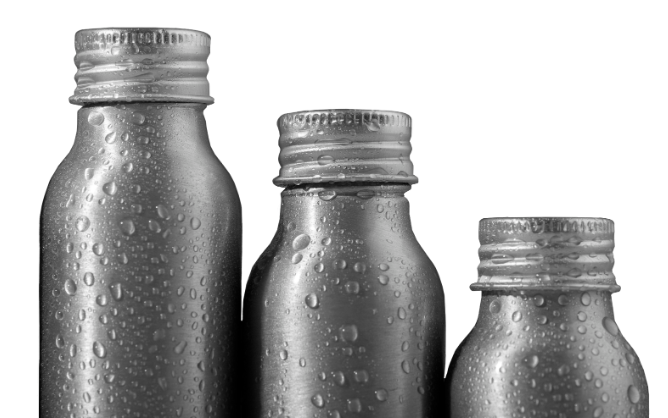
Glass vs Stainless Steel Hydrogen Water Bottles: Which Is Better?
|
|
Choosing the right hydrogen water bottle can feel like a big decision, especially when you're investing in your health and wellness. With glass and stainless steel being the top contenders, each material offers unique benefits that could make or break your daily hydration routine.
The material of your hydrogen water bottle affects everything from hydrogen retention and taste to durability and portability. Whether you're a fitness enthusiast looking for something that can handle your active lifestyle or someone who values purity and elegance at home, understanding these differences will help you make the best choice for your needs.
Here’s a comprehensive comparison to help you find the perfect hydrogen water bottle for your lifestyle.
The material of your hydrogen water bottle plays a crucial role in your overall experience and the effectiveness of hydrogen water itself. Unlike regular water bottles, hydrogen water bottles need to handle the unique demands of hydrogen gas infusion and retention.
Australia's growing focus on sustainable, eco-friendly materials has also made the environmental impact of bottle materials more relevant than ever. Both glass and stainless steel offer recyclable, long-lasting alternatives to plastic options.
Glass hydrogen water bottles have earned a reputation for delivering the purest drinking experience possible. Their elegant appearance and premium feel make them particularly appealing to those who prioritise aesthetics alongside functionality.
Despite these limitations, glass remains an excellent choice for those who value purity above all else and primarily use their hydrogen water bottle in controlled environments.
Stainless steel hydrogen water bottles represent the perfect balance of durability, functionality, and safety. They've become increasingly popular among active individuals and families who need reliable, long-lasting hydration solutions.
Despite these minor drawbacks, stainless steel bottles offer the best combination of performance, durability, and practical benefits for most users.
|
Feature |
Glass |
Stainless Steel |
|
Durability |
Fragile, prone to breaking |
Highly durable, impact-resistant |
|
Safety |
Completely inert, no leaching |
Food-grade options prevent leaching |
|
Portability |
Heavy, requires careful handling |
Lightweight relative to strength |
|
Hydrogen Retention |
Good, but limited by pressure constraints |
Excellent, supports high-pressure systems |
|
Insulation |
Poor temperature control |
Excellent with double-wall designs |
|
Maintenance |
Easy to clean, dishwasher safe |
Requires regular cleaning to prevent spots |
|
Price Range (Australia) |
$80-200 |
$100-300 |
|
Ideal User |
Home/office use, purity-focused |
Active lifestyle, families, travel |
|
Environmental Impact |
100% recyclable, but fragile |
Recyclable, long-lasting |
|
Hydrogen Concentration |
Often limited to <0.5 ppm |
Can achieve >1.0 ppm |
This comparison clearly shows that while glass excels in purity and aesthetics, stainless steel offers superior practical benefits for most users' daily needs.
Choosing between glass and stainless steel ultimately depends on your lifestyle, priorities, and intended use patterns.
Choose glass hydrogen water bottles if you:
Choose stainless steel hydrogen water bottles if you:
For most Australians, stainless steel bottles offer the best overall value and practicality. They provide excellent safety, superior performance, and the durability needed for daily use across various environments.
However, if you're someone who primarily drinks hydrogen water at home and values the purest possible taste experience, a glass bottle might be worth the extra care required.
Consider your daily routine, activity level, and personal preferences when making your decision. Remember, the best hydrogen bottle is the one you'll actually use consistently.
High-quality stainless steel bottles actually support higher hydrogen concentrations than glass alternatives. Food-grade stainless steel can safely handle the high-pressure electrolysis needed for optimal hydrogen generation, often achieving concentrations above 1.0 ppm. The key is choosing bottles made from 304 or 316-grade stainless steel specifically designed for hydrogen water applications.
Most glass hydrogen water bottles are dishwasher safe, but always check the manufacturer's instructions first. The electronic components (if any) should be removed before washing. Hand washing is often recommended to prevent potential damage from high heat or aggressive dishwasher cycles that could affect the bottle's hydrogen generation capabilities.
Stainless steel is significantly better for temperature control. Double-wall vacuum insulation in stainless steel bottles can maintain cold temperatures for 12-24 hours and hot temperatures for 6-12 hours. Glass offers poor insulation properties and can become uncomfortably hot or cold to touch. However, always check if your specific hydrogen water bottle is designed for hot beverages, as some electrolysis systems work best with room temperature or cold water.
Both glass and stainless steel hydrogen water bottles offer unique advantages, but your lifestyle and priorities should guide your decision. Glass delivers unmatched purity and elegance for home use, while stainless steel provides the durability and performance needed for active lifestyles.
Consider factors like where you'll primarily use your bottle, how often you travel, and whether you prioritise maximum hydrogen concentration or absolute taste purity. Remember that investing in a quality hydrogen water bottle, regardless of material, is an investment in your long-term health and wellness.
Ready to experience the benefits of hydrogen water for yourself? Explore Hydrogen H2O's premium collection of hydrogen water bottles designed specifically for Australian conditions and lifestyles. Our team can help you choose the perfect bottle to match your needs and support your wellness journey.